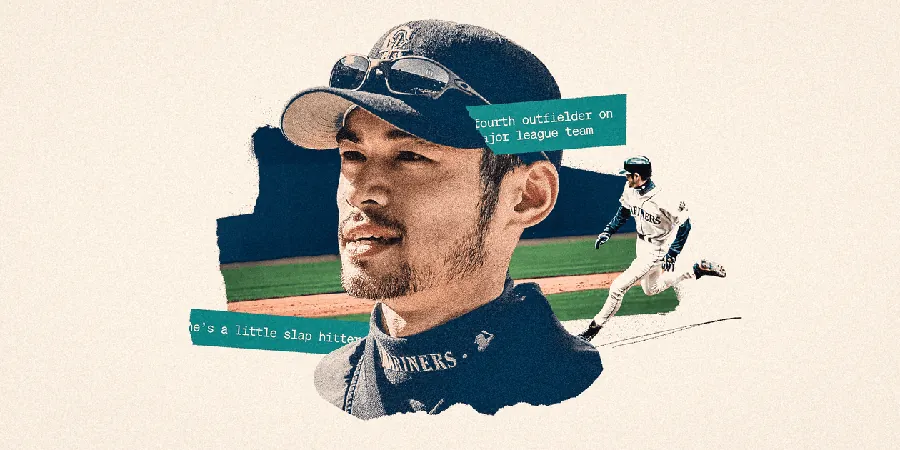
Ichiro Suzuki: From Skepticism to Cooperstown - The Remarkable Journey of a Baseball Icon
2025-01-22
Author: Yan
A New Beginning
On April 2, 2001, a chilly Opening Day unfolded at Safeco Field in Seattle, where the Mariners faced the Oakland Athletics. As Bret Boone jogged to second base, a pivotal conversation took place with second base umpire Kerwin Danley, kickstarting the narrative of baseball’s newest phenomenon: Ichiro Suzuki.
The Rise of a Star
Fast forward to today, Ichiro is celebrated as one of baseball’s greatest players, having come remarkably close to being the first position player unanimously elected to the Baseball Hall of Fame. It’s a status that few could have predicted back in his rookie season when many saw him as more of a curiosity than a cornerstone of the sport.
A Phenomenal Background
Originally from Japan, Ichiro arrived with an impressive résumé, including seven consecutive batting titles in Nippon Professional Baseball (NPB). Yet, his stature at 5-foot-9 and 160 pounds, coupled with unconventional batting mechanics and a perceived lack of power, sparked skepticism among Major League observers. Some believed his ground-ball hitting style would not translate well against the slugging power prevalent in the league during that era.
Skepticism and Support
Larry Stone, a veteran baseball writer who followed Ichiro's career closely, reflected on this skepticism. Critics doubted whether Ichiro could adapt to MLB’s quicker pitching, while even his own manager raised concerns about his ability to pull the ball effectively. On the other hand, Ichiro’s charming and laid-back personality won the hearts of his teammates, despite the criticisms leveled against him.
Training and Determination
However, Ichiro's journey to stardom was anything but typical. His childhood was marked by relentless training, where swings and drills were the focal points of his existence. His father, Nobuyuki, led him through grueling practice sessions that Ichiro later described as bordering on severity. Yet, this environment forged a remarkable talent who would soon captivate American audiences.
Defying Expectations
In a league highlighted by home runs and brawn, Ichiro represented a stark contrast—a relentless singles hitter determined to outpace defenders. Some doubted his ability to even succeed at the MLB level, labeling him a "fourth outfielder" and a "little slap hitter." Yet once the season began, it quickly became evident that Ichiro was much more than a passing trend.
Historic Rookie Season
The 2001 season began with hesitancy; Ichiro struggled initially, hitting .200 in Spring Training. Yet, things changed dramatically. As the season progressed, his speed and unyielding effort transformed the Mariners lineup. Ichiro concluded his rookie year with an astonishing .350 batting average, 242 hits, and 52 stolen bases—one of the most celebrated debut seasons in MLB history.
Cultural Impact
His transition to America echoed beyond mere statistics; it was a cultural phenomenon. U.S. fans embraced Ichiro’s unique skills, and he gradually silenced the skeptics, proving that hard work, confidence, and talent could break down barriers.
Recognition and Legacy
By the end of the season, Ichiro was awarded both the American League Rookie of the Year and the MVP—a testament to his extraordinary abilities. His story didn’t just redefine the expectations of Japanese players but also emphasized that a different approach to the game could coexist with power hitting.
A Lasting Influence
Ichiro’s impact reverberated through baseball, reshaping how players of diverse backgrounds could succeed. He not only brought his talent to America but also a unique flair, combining speed, precision, and relentless determination.




 Brasil (PT)
Brasil (PT)
 Canada (EN)
Canada (EN)
 Chile (ES)
Chile (ES)
 Česko (CS)
Česko (CS)
 대한민국 (KO)
대한민국 (KO)
 España (ES)
España (ES)
 France (FR)
France (FR)
 Hong Kong (EN)
Hong Kong (EN)
 Italia (IT)
Italia (IT)
 日本 (JA)
日本 (JA)
 Magyarország (HU)
Magyarország (HU)
 Norge (NO)
Norge (NO)
 Polska (PL)
Polska (PL)
 Schweiz (DE)
Schweiz (DE)
 Singapore (EN)
Singapore (EN)
 Sverige (SV)
Sverige (SV)
 Suomi (FI)
Suomi (FI)
 Türkiye (TR)
Türkiye (TR)
 الإمارات العربية المتحدة (AR)
الإمارات العربية المتحدة (AR)